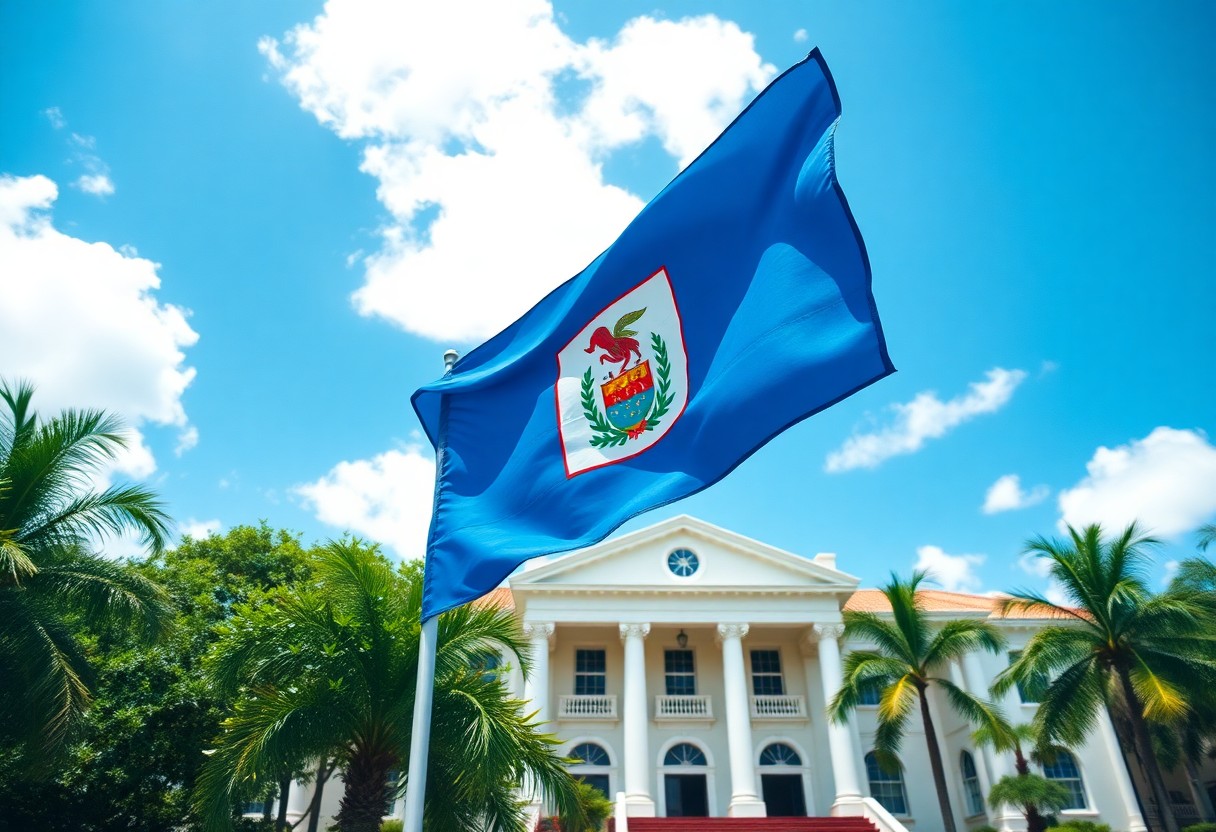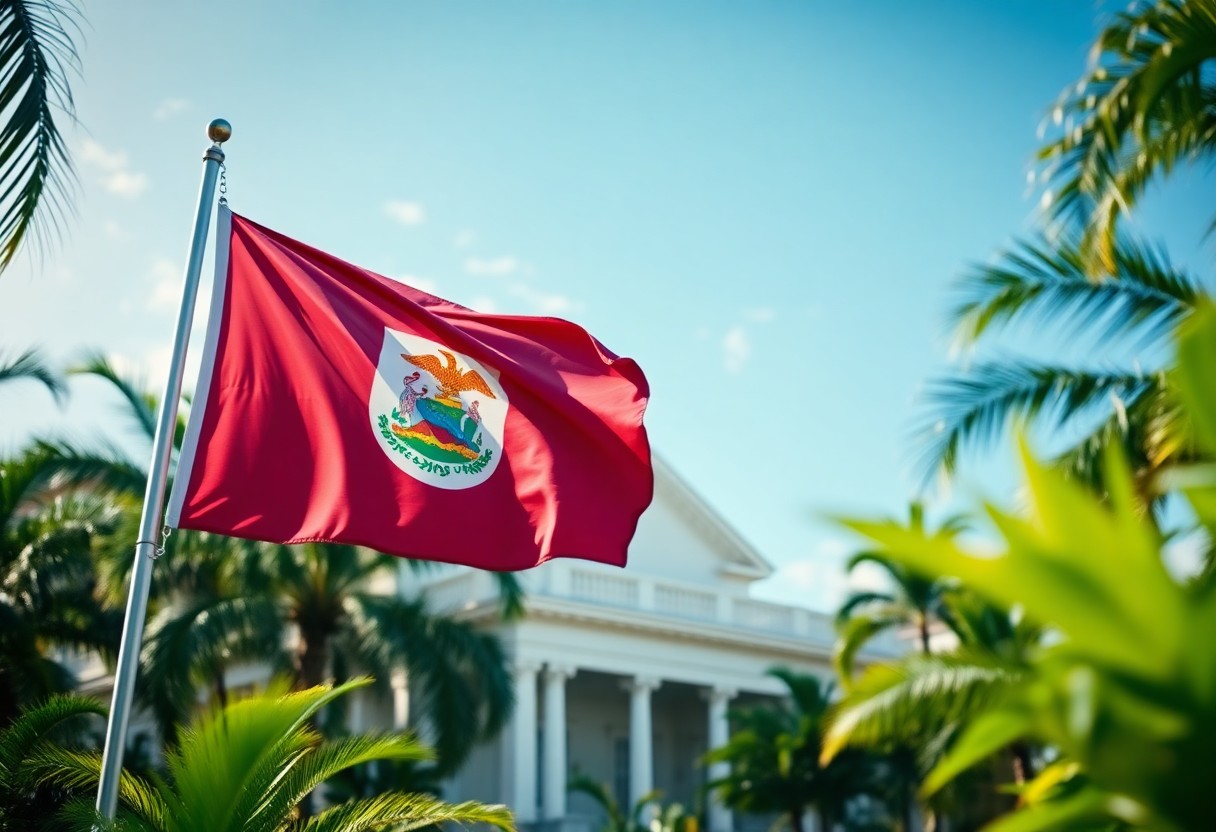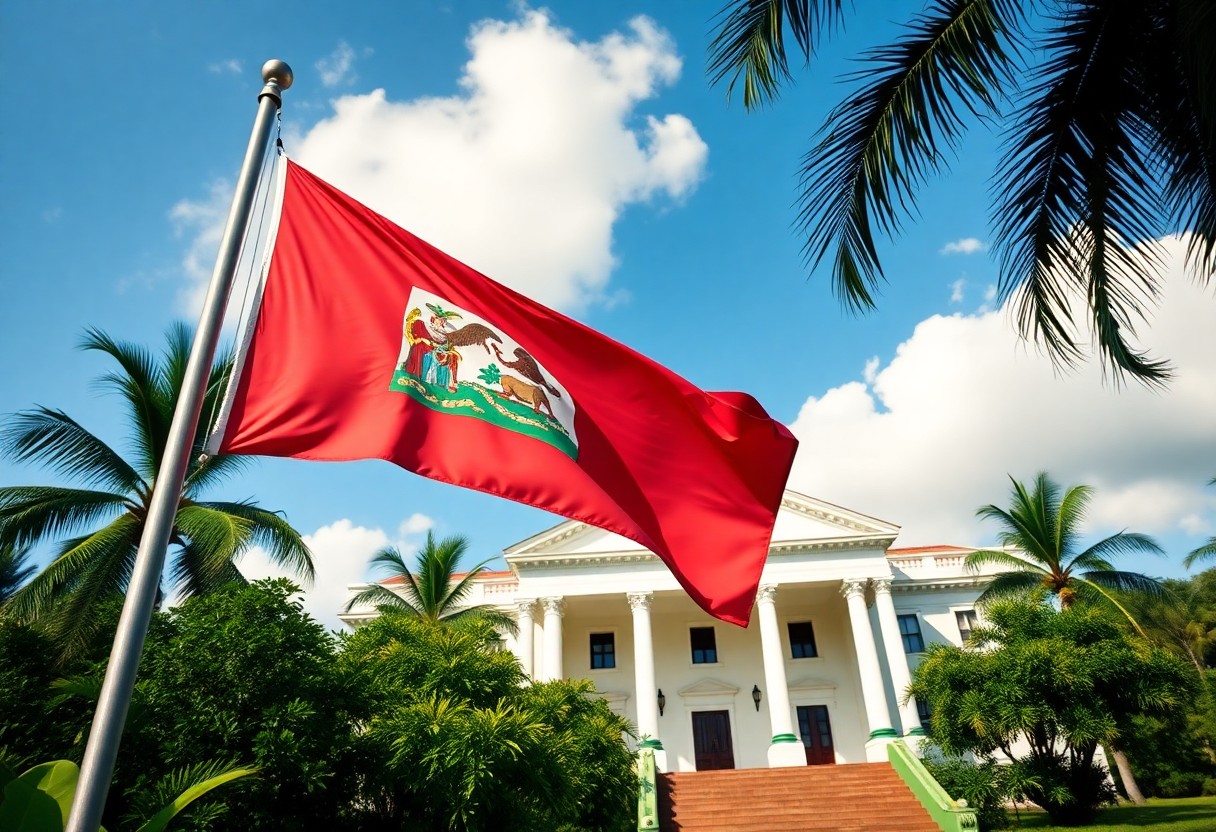Delving into Belize’s Journey to Independence is essential for understanding the foundational elements of Belizean identity and its historical context. This article will explore the critical historical events that shaped the nation’s evolution into an independent state. It will underscore the persistent struggles against colonial rule, the pivotal treaties that were enacted, and the monumental achievement of self-governance realized in 1981. These historical occurrences not only highlight the fortitude and commitment of the Belizean populace but also reveal the transformative advancements that facilitated the emergence of a democratic Belize. Join us in uncovering the significant milestones that define the modern identity of Belize.

Discovering the Vibrant Pre-Colonial History of Belize
Prior to European colonization, the pre-colonial era in Belize was defined by a rich array of indigenous cultures and deep historical narratives. Various indigenous communities thrived in this region, with the Maya civilization standing out as the most significant. These societies crafted complex social hierarchies, developed innovative agricultural practices, and established extensive trade networks that were truly remarkable for their time. The cultural imprint of this era established a crucial foundation for Belize’s identity, significantly influencing the course of subsequent historical developments within the region.
Highlighting the Remarkable Achievements of the Maya Civilizations
A thorough exploration of pre-colonial Belize must prominently showcase the remarkable accomplishments of the Maya civilizations. These ancient cultures not only prospered but also reached exceptional levels of innovation in areas such as architecture, astronomy, and agriculture. Residents and visitors alike can discover enchanting ruins like Caracol and Lamanai, which stand as enduring symbols of the Maya’s advanced lifestyle, illustrating their profound understanding of urban planning, mathematics, and natural sciences. These ruins serve as a window into a sophisticated civilization that laid significant groundwork for Belize’s cultural heritage.
Embracing Belize’s Multifaceted Cultural Heritage
At the heart of Belize’s identity lies a rich and intricate cultural heritage. This vibrant tapestry is woven from the dynamic interactions of indigenous, African, and European influences that have shaped modern Belizean society. The variety within this heritage is vividly reflected in the multitude of languages, traditions, and customs that enhance the daily lives of Belizeans, contributing to a unique cultural landscape celebrated by its people. This fusion of cultures not only enriches Belize’s identity but also fosters a sense of unity and pride among its citizens.
Moreover, heritage plays a vital role in shaping Belize’s cultural identity. The architectural marvels of the Maya and their groundbreaking agricultural methods continue to resonate in contemporary society. Additionally, the influence of African and Creole contributions has significantly enhanced Belize’s artistic expressions, musical traditions, and culinary arts. This fascinating blend of cultures cultivates a strong sense of belonging and pride among Belizeans while serving as a reminder of the historical trials faced by these diverse communities throughout Belize’s rich history.
Examining the Era of British Honduras in Belize
The period when Belize was referred to as British Honduras marks a critical chapter characterized by British colonial authority. Spanning from the 18th century into the mid-20th century, this era witnessed the emergence of a distinct cultural identity heavily influenced by British governance, economic endeavors, and local resistance movements. It was during this time that significant transformations occurred within political and administrative structures, ultimately laying the groundwork for Belize’s unwavering pursuit of independence and self-determination.
A Comprehensive Timeline of British Rule in Belize
Following its formal designation as a British colony in 1862, British Honduras experienced considerable developments, including the introduction of the British legal system and the establishment of essential infrastructure. Throughout the years, the colony faced substantial pushback from the local populace, most notably during the 1934 labor riots, which played a crucial role in galvanizing support for self-governance among the Belizean people. These events highlighted the growing desire for autonomy and the need for political reform in the face of colonial rule.
The Enduring Effects of British Colonialism on Belize
Above all, the effects of British colonial rule have left an indelible mark on Belizean society and its governance frameworks. The introduction of the English language, alongside legal systems and educational structures, played a pivotal role in modernizing the nation. While this colonial relationship presented various challenges, it also established fundamental foundations for the democratic governance that Belize enjoys today, allowing for greater political participation and representation.
Furthermore, the influence of British colonialism is evident in countless aspects of Belize’s contemporary society. The English language remains the official language, facilitating both local and international communication. Additionally, the legal and governance frameworks instituted during colonial times set the stage for Belize’s current legal system. However, it is vital to acknowledge that this influence was coupled with the exploitation of resources and cultural imposition, which have had lasting repercussions on Belizean demographics and national identity. Understanding these complex dynamics is essential for comprehending Belize’s multifaceted journey toward independence.

The Critical Pathway to Independence for Belize
Any discussion surrounding Belize’s journey to independence must acknowledge the significant events that paved the way for this monumental change. The road to freedom involved responding to colonial pressures, nurturing a growing sense of nationalism, and advocating for increased self-determination among the Belizean populace. The mid-20th century marked a surge in political activism, which tirelessly laid the groundwork for Belize’s ultimate liberation from British colonial authority.
Acknowledging the Influential Leaders in Belize’s Independence Movement
Prominent historical milestones along Belize’s path to independence were shaped by influential figures such as George Cadle Price. Recognizing their leadership and foresight allows us to appreciate how these individuals mobilized public support for self-governance, significantly impacting the future and identity of the nation. Their unwavering commitment to Belize’s autonomy served as a beacon of hope for many and inspired collective action among the populace.
Participating in Negotiations for Self-Governance
During the essential discussions for self-governance, representatives of the Belizean populace took a prominent role, proposing transformative strategies that would change the historical narrative.
With a proactive and resolute approach, Belizean leaders engaged in negotiations with British representatives regarding the transition to self-governance. These negotiations became a pivotal turning point, as Belize sought to assert its autonomy in self-administration. The formation of political parties and organized movements played a crucial role in articulating the demands for change voiced by the Belizean populace. As tensions escalated, the discussions grew increasingly intense, reflecting the urgency felt by Belizeans for autonomy. This critical phase culminated in several constitutional amendments, setting the stage for Belize’s eventual independence from colonial oversight.
Key Milestones on the Journey to Independence
A multitude of key milestones marked Belize’s arduous journey to independence. From early legislative initiatives to pivotal events, each moment played a vital role in the quest for self-determination. As you delve into these milestones, you will come to appreciate their profound impact on the nation’s identity and the ongoing struggle for sovereignty.
Noteworthy Legislative Developments Leading to Self-Governance
Among the key early legislative developments was the introduction of the Internal Security Act in 1961. This act established a framework for self-governance, permitting a limited degree of autonomy in local governance matters. This crucial legislation marked a watershed moment, encouraging Belizeans to actively engage in political processes and advocate for further reforms. The act not only allowed for greater representation but also fostered a sense of empowerment among the Belizean populace.
Defining Events from 1964 to 1981 that Shaped Belize’s Political Landscape
In the years leading up to Belize’s independence, significant events spanning from 1964 to 1981 played a critical role in molding the nation’s political landscape. These moments included the emergence of influential political leaders and nationalist movements that laid the groundwork for achieving self-governance.
During this transformative era, numerous key events unfolded that contributed to Belize’s independence. The 1964 Elections ushered in a new era of political engagement by broadening voting rights to a larger segment of the Belizean population. The 1969 Belize-Guatemala tensions further intensified calls for unity and autonomy among citizens. The 1973 Constitution established a more robust governance framework, granting additional rights and liberties to the populace. Ultimately, these developments, coupled with the declaration of independence in 1981, defined Belize’s trajectory toward establishing a national identity and self-rule.

Challenges and Progress in Post-Independence Belize
In the years following its independence in 1981, Belize faced a series of challenges and opportunities in its quest to cultivate a unified national identity and effective governance. The nation undertook significant initiatives to establish a stable political framework while promoting economic growth and addressing pressing social issues. Efforts were directed towards enhancing infrastructure, education, and healthcare systems, all aimed at improving the overall quality of life for every Belizean in this evolving democracy.
Understanding Belize’s Political Framework
The political structure of Belize is fundamental in determining the governance and functioning of the nation. Belize operates as a parliamentary democracy with a clear separation of powers among the executive, legislative, and judicial branches. The Prime Minister leads the government, while the legislative body comprises the House of Representatives and the Senate. This political system encourages regular elections and representation of diverse political perspectives, promoting active civic engagement among the populace and fostering a more inclusive political environment.
The Significance of Commonwealth Membership for Belize
Upon gaining independence, Belize became a member of the Commonwealth of Nations, which has been instrumental in nurturing international relationships and support. This membership grants Belize access to a network of countries that share similar democratic values, enabling participation in collaborative initiatives across sectors such as education and trade.
A considerable advantage of Belize’s Commonwealth membership is the opportunity to engage in discussions regarding regional issues that affect the nation. Participation in this organization enhances Belize’s global standing while strengthening ties with other former British colonies. Additionally, you will find that Commonwealth nations often provide developmental assistance, which can be crucial in addressing local challenges. However, this membership also entails a commitment to uphold democratic principles and human rights, ensuring that Belize continues to evolve as a respected member of the global community.
Confronting the Modern Challenges Facing Belize
It is imperative to recognize that Belize encounters a variety of contemporary challenges that significantly influence its stability and growth. These challenges encompass economic issues, social dynamics, governance, and environmental factors that collectively shape the nation’s future trajectory. Addressing these urgent matters is vital for sustaining progress, as they directly impact the daily lives of Belizeans and the overall development of the country.
Investigating Economic Challenges in Contemporary Belize
Modern economic challenges facing Belize include elevated unemployment rates and a heavy reliance on tourism as a primary economic driver. These factors contribute to economic instability and have a direct effect on the livelihoods of local businesses. Fluctuations in global tourism trends can have significant repercussions on Belize’s economy, placing additional strains on government resources and public services that are crucial for the population’s well-being.
Tackling Social Issues in Belizean Society
In Belize, social challenges such as poverty and inequality persist as significant hurdles. Factors like limited access to education and healthcare services exacerbate disparities among various communities, negatively impacting the overall quality of life for Belizeans.
Moreover, it is crucial to acknowledge that social challenges in Belize are intricately intertwined with existing economic conditions. The high rates of poverty severely affect access to essential services, and inequalities in education can impede future opportunities for many individuals. Nevertheless, community initiatives and government programs actively work to address these concerns, fostering a sense of hope and resilience among the population. By strengthening social ties and investing in education and healthcare, Belize can move closer to achieving a more equitable society for all its citizens.
Reflecting on Belize’s Historic Path to Independence
Reflecting upon Belize’s journey to independence provides valuable insight into the importance of key historical milestones that shaped the nation. You can observe the implications of the 1964 and 1973 constitutional changes that laid the foundation for self-governance. You will also recognize the significance of the 1975 Treaty of Friendship with Guatemala in addressing long-standing territorial disputes. Ultimately, the official independence achieved on September 21, 1981, marked a transformative chapter in Belize’s narrative, allowing every Belizean to honor their national identity and sovereignty. Each of these milestones played a crucial role in shaping Belize into the nation it is today.
Common Inquiries Regarding Belize’s Independence
What Major Historical Events Led to Belize Achieving Independence?
Belize’s path to independence was characterized by a series of significant events. The independence movement gained traction in the 1940s, culminating in 1981 when Belize officially liberated itself from British colonial rule. Key milestones during this period included the establishment of a constitutional government in 1964 and the organization of self-governing elections that empowered the populace.
Who Were the Key Figures Involved in Belize’s Independence Movement?
Several influential figures played vital roles in the independence movement. George Price, the leader of the People’s United Party, was instrumental in advocating for Belize’s autonomy. Other notable individuals included Philip Goldson and various members of political organizations that actively campaigned for self-determination and national pride.
How Did the British Government React to Belize’s Independence Movement?
The British government initially showed resistance to independence but ultimately recognized Belize’s readiness for self-rule. This shift occurred as British officials observed the increasing political awareness and activism among Belizeans. Collaborations with local leaders facilitated a smooth transition toward independence.
The Article How Belize Gained Independence: Key Historical Milestones appeared first on Belize Travel Guide
The Article Belize Independence: Key Historical Milestones Explained Was Found On https://limitsofstrategy.com


No responses yet